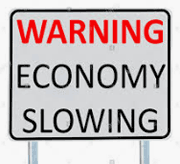| |
|
| |
|
 |
Supply
Chain by the Numbers |
| |
|
| |
- April 16, 2020 -
|
| |
|
| |
|
| |
|
| |
Economic Forecast for 2020 is Grim; Container Carriers Rapidly Idling Ships; Used Car Prices Collapsing with Big Ramifications; Coming Gridlock at US Ports as Containers Don't Move |
| |
|
| |
| |
| |
| |
3.0% |
 |
That is the expected fall in world economic activity in 2020, according to a dire new forecast this week from the International Monetary Fund. That may not sound like all that much, but it would actually be the worst annual result since the Great Depression. By contrast, in January the IMF had forecast a global GDP expansion of 3.3% for this year, so the total swing is more than 6%. "It is very likely that this year the global economy will experience its worst recession since the Great Depression, surpassing that seen during the global financial crisis a decade ago," Gita Gopinath, the IMF's chief economist, said in the latest World Economic Outlook report. The IMF sees a drop in US GDP of 5.9% for the year, and an even larger decline in Europe. In brighter news, the IMF expects global growth of 5.8% in 2021, but being off a now much lower 2020 comparison, total output will still be below 2019 levels.
|
|
|
| |
| |
|
|
|
That is huge drop in used car sales in US the last week of March, as locked down consumers wearing masks when venturing outside aren't interested in cars new or used, with weekly miles driven for most consumers falling substantially. What's more, most auto auction sites are closed, filled with cars but no buyers. The general situation is expected to last for months. Why is this a big deal? Because of ramifications many other places in the economy. For example, automakers will likely have to write-down substantially the value of current car leases, because the value of the cars at lease end will have fallen substantially. Those write-offs will be hitting the OEM's bottom lines at the same time as profits plunge due to collapsing sales of new cars – and maybe a wave of defaults on leases and loans they already have. Rental car companies will also take a financial beating, as the value of their huge fleets, sold off as used cars after 20-30,000 miles, also plummets. Some car dealers getting cars back in from lease are said to be struggling just find places to park all the vehicles with auction sites closed. The good news: if you a looking for a used car in the next few months, there will be great bargains to be had. |
| |
| |
|
| |
| |
13% |
 |
That is the share of total ocean container ship capacity that has now been idled in the face of collapsing demand – and it could get worse. That 13% lay-up rate is believed to be an all-time high for industry. The container ship analysts at France's Alphaliner calculated in a research note this week that container carriers lines have pulled capacity of some 3 million TEU off the market. What's more, Alphaliner says carriers will void more than 250 scheduled sailings in Q2. The goal of idling ships and voiding scheduled sailings is to keep rates up by reducing the supply side of the equation – a result that will be tough to achieve. More immediately, carriers also hope to conserve cash from operating fewer ships in a weak rate environment. The Wall Street Journal reports that large megaships with capacity of 20,000 or more TEU often sail now less than half full. If there is even any sort of "peak season" for container shipping this year, it is likely to be a very weak one indeed.
|
| |
| |
| |
| |
| |
|
|
|
| |
 |
 |
| |
 |
![]() |
 |
|
| |
 |
Feedback |
|
|
|
![]()
|
No Feedback on this article yet.
|
|
![]() |
|
|
|
![]() |
 |
![]() |
 |
|
| |